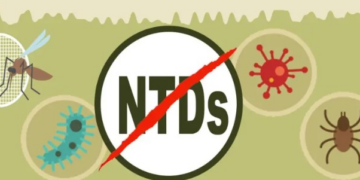You came up with Safe Birth Initiative, what do intend to achieve with it and what is the funding mechanism?
The Safe Birth Initiative (SBI) is a sustainability agenda of Coca-Cola Nigeria, to support and strengthen Nigeria’s healthcare capacity in mitigating the alarming rate of neonatal and maternal mortality, with a view to achieving the Sustainable Development Goals (SDGs) in relation to maternal and new-born mortalities.
This intervention is valued at $10.8m to purchase maternal and neonatal medical equipment to fully kit hospitals for the preparatory rooms, operating suites and recovery rooms, maternity wards as well as neonatal wards across the selected (15) public hospitals.
The initiative was launched in 2018 in partnership with the Office of the Senior Special Assistant to the President on SDGS, Federal Ministry of Health, and US-based International NGO, Medshare International. The SBI has been reducing mother and infant death through equipping neonatal units in over 10 teaching hospitals and Federal Medical Centres (FMC) in Nigeria, with the essential infrastructures to aid safe deliveries and post-delivery care for mothers and babies, including intensive care provisions to help professional management of delivery complications.
How has it impacted Nigeria’s healthcare system since inception?
The initiative has reached over 56,000 families impacting over 21,000 mothers and babies with professional medicare – in equipment and personnel. I have to explain that in addition to donating medical equipment, Coca-Cola Nigeria has successfully upskilled over 150 Biomedical Engineers and 400 end-users to ensure optimal utilisation and effective maintenance of the equipment.
The training is done with a view to promoting a maintenance culture and rehabilitation of abandoned medical equipment. Through this also, we are helping in reducing downtime across the various medical facilities in Nigeria.
In geographical spread, the impact of the SBI can be seen pan Nigeria. Some of the medical facilities that the SBI has impacted through are, Federal Medical Center, Ebute-Metta, University of Port-Harcourt Teaching Hospital, Aminu Kano Teaching Hospital, University of Ilorin Teaching Hospital, Federal Medical Centre, Owerri, Wesley Guild Hospital Ilesha, Abuja National Hospital, and Alimosho General Hospital, with more hospitals in progress.
What contributions are you making this year on this initiative?
We are well pleased with the impact the SBI is making and remain motivated to sustain the goal of supporting the healthcare system in Nigeria. For this purpose, we shall be donating more state-of-the-art medical equipment, to more teaching hospitals and FMCs across Nigeria as well build capacity for biomedical engineers and end users to ensure maximum uptime of the donated equipment.
Some countries, including Nigeria need to wake up on the war against neonatal and maternal mortality. Experts posit that the infant mortality rate in Nigeria stands at 58.23 per 1000 births. They attribute this to various factors including infection, premature birth, asphyxia, or congenital anomalies, and dearth of neonatal care facilities at hospitals in Nigeria.
For instance, the World Health Organisation (WHO) states that “The most common direct causes of maternal injury and death are excessive blood loss, infection, high blood pressure, unsafe abortion, and obstructed labour, as well as indirect causes such as anemia, malaria, and heart disease. Most maternal deaths are preventable with timely management by a skilled health professional working in a supportive environment.”
This partly explains why the Coca-Cola System is deploying so much resources to curbing this menace through the SBI. We place priority on this because the United Nations Children’s Fund (UNICEF) states that Nigeria currently contributes 10 percent to the global neonatal death rate, which stands at 576 per 100,000 live births. According to UNICEF, the neonatal mortality rate in Nigeria stands at 56.220 deaths per 1000 live births, which is a 2.57 percent decline from 2021.
What’s the ultimate aim of the SBI?
Our core objective, which we are diligent to achieve is that no family should ever experience the loss of a mother or a newborn-child due to absence of equipment at a critical stage in delivery or even as a result of lack of functional lifesaving medical equipment in healthcare institutions in Nigeria. Our intent is to make our maternal and child care interventions in Nigeria a sustainable one. To ensure the sustainability of this scheme and extend its reach, we will strive to create partnerships with like –minded organizations and donors. We believe that by creating a network of partners we can future-proof the scheme and increase our impact.





